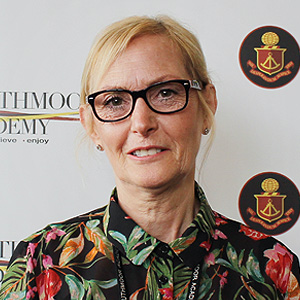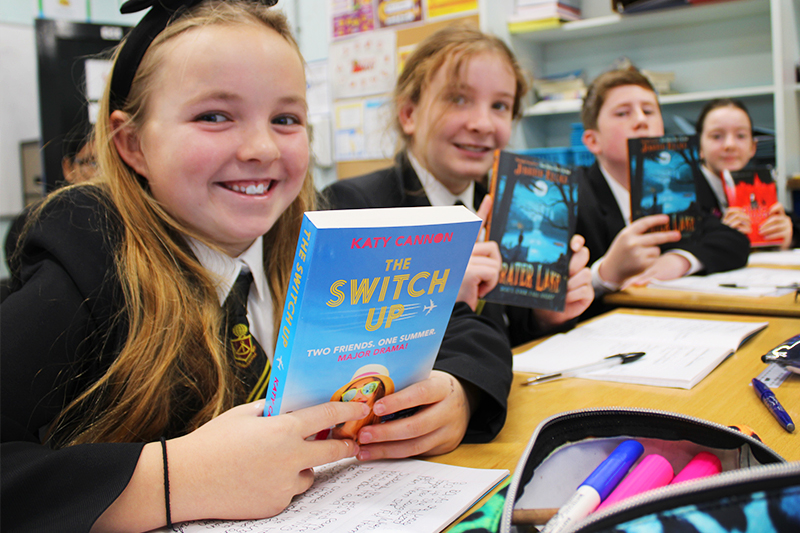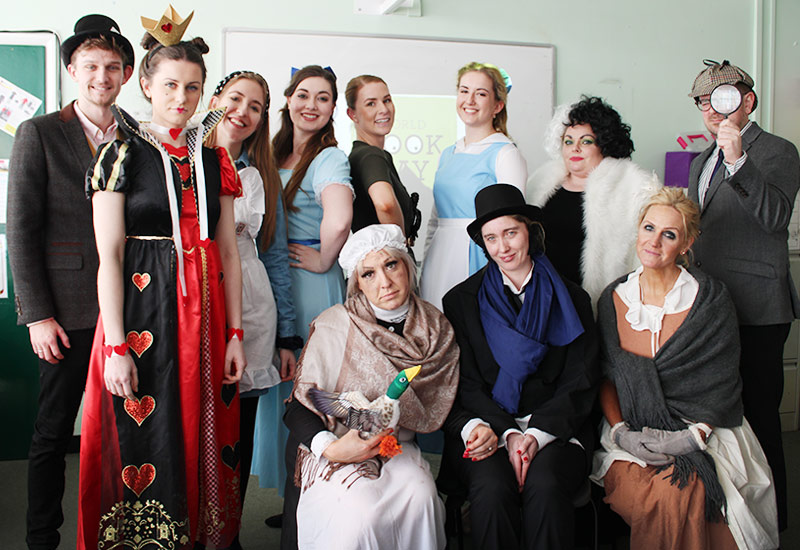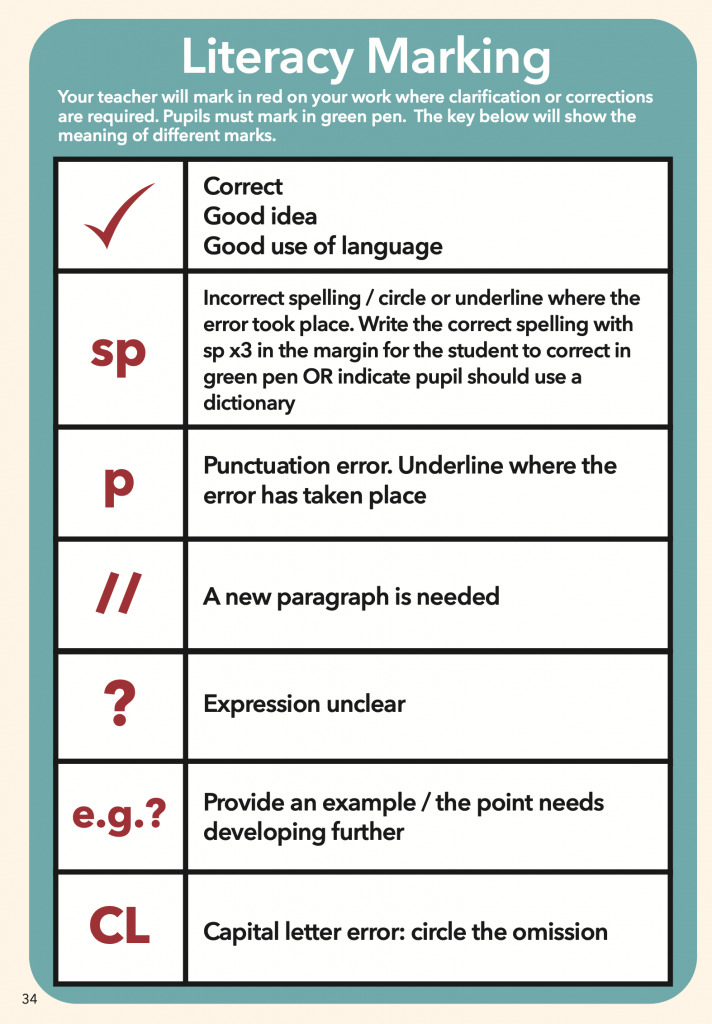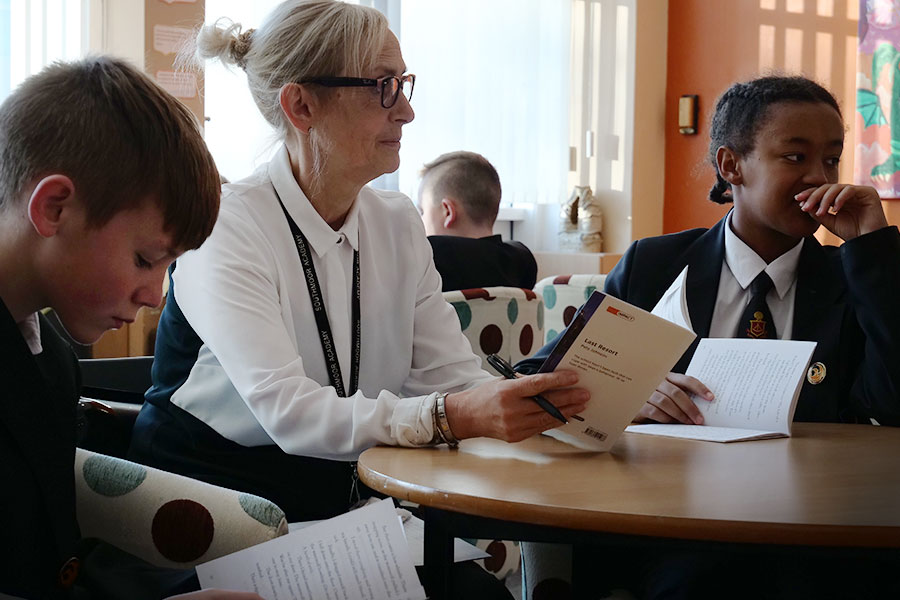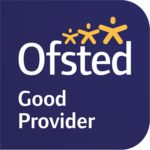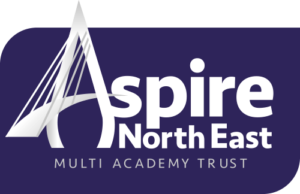Literacy: A Whole School Approach
Developing literacy is of utmost importance at Southmoor Academy and is promoted widely.
We aim to promote high standards of literacy by equipping students with a strong command of the written and spoken word and developing their love of language through reading for enjoyment.
All teachers have responsibility for raising literacy standards in their curriculum areas as we believe that the development of an effective literacy skillset is essential to achievement for our students. As such, all curriculum areas focus on improving literacy within their subject. This includes developing new subject specific vocabulary, both orally and in writing; refining reading skills, and improving grammatical accuracy. This ensures there is a consistent whole school approach to the way we teach and assess these skills across the school.
Meet our Literacy Team
We have a dedicated ‘Literacy Team’, with clear roles and responsibilities, who work together to make sure literacy is continually at the top of our whole school improvement agenda.
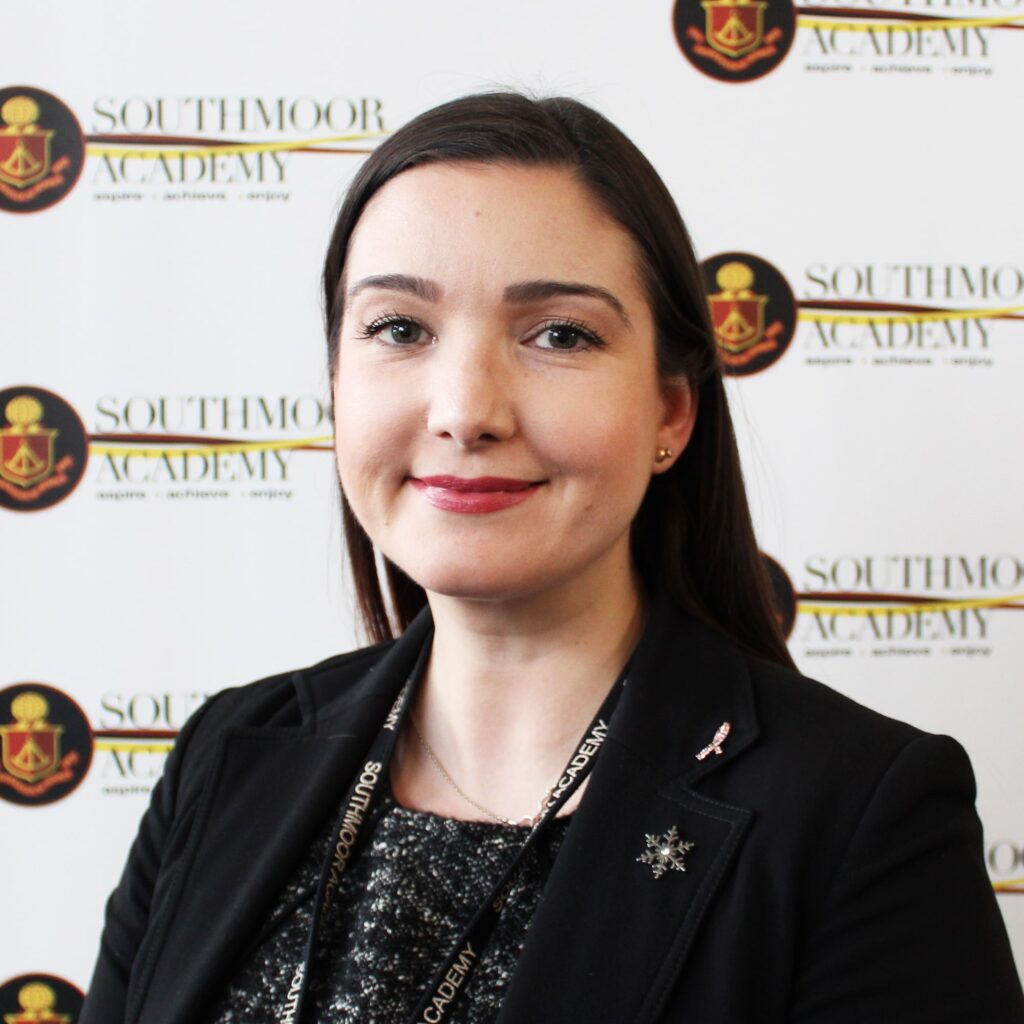
Miss. MatherAssistant principal |

Mrs. ArmstrongAssistant Principal |
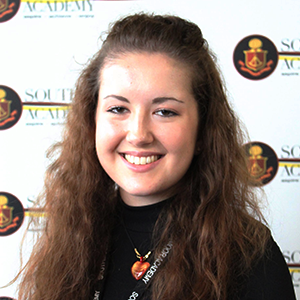
Miss. BartramReading co-ordinator |
|
|
|
Promoting a Love of Reading
Book Buzz: Each year we subscribe to the Book Buzz programme and provide the gift of a free book to our Year 7 and 8 students. This helps to foster a love of reading in our students as they choose a book that matches their interests.
World Book Day: We participate in the annual celebration to promote our love of reading. Staff and students participate in literacy focused activities through the school such as reading and writing competitions, literacy quizzes and sharing our favourite stories with one another.
RISE Lessons: All Year 7 and 8 students receive a weekly reading lesson which we call RISE (Read, Investigate, Succeed and Enjoy). During these lessons, every class will focus on a novel which gives students the opportunity to develop their confidence in reading by practicing reading aloud and using key reading skills such as skimming and scanning to help develop their comprehension.
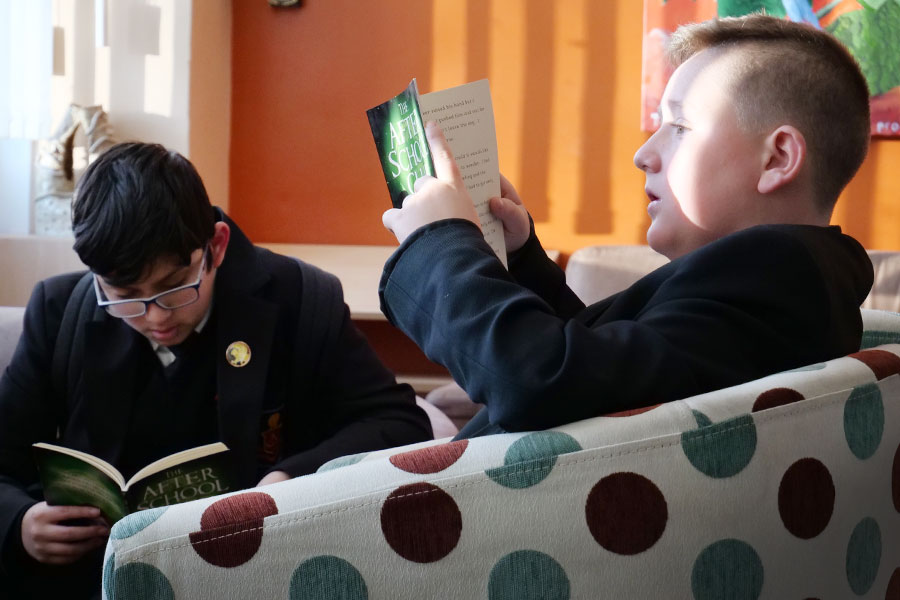 The Reading Suite: Our warm and friendly reading suite is designed with the intention of encouraging students to nurture their love of reading in a relaxed and welcoming reading space. Placed over two floors, our light and spacious space is filled with a wide range of fiction and non-fiction books that are suitable for all reading levels and ages. Books are available to borrow or read in our comfortable chairs and bean bags and we are open from 8-4pm.
The Reading Suite: Our warm and friendly reading suite is designed with the intention of encouraging students to nurture their love of reading in a relaxed and welcoming reading space. Placed over two floors, our light and spacious space is filled with a wide range of fiction and non-fiction books that are suitable for all reading levels and ages. Books are available to borrow or read in our comfortable chairs and bean bags and we are open from 8-4pm.
Competitions: Key Stage 3, 4 and 5 are invited to participate in Creative writing competitions launched nationwide by Young Writers each term. We have had many students’ work published since 2019.
Book Clubs: There is a KS3 and KS4 lunchtime book club whereby students are invited to share their personal reading experiences.
School Trips: A selection of Year 7, 8 and 9 pupils will visit the local Waterstones store in Summer term to experience interactive, reading-based activities, have the chance to chat with a guest speaker and walk away with a free book of their choice.
The Great Year 10 Giveaway: Launched in the spring term in English lessons, all Year 10s were offered the opportunity to select a book from a wide range of titles. Our free books range from an illustrated history of engineering to dystopian and fantasy fiction and the initiative is designed to foster a love of reading for all purposes. Studies show that children are much more likely to read books that they choose, and having books at home brings proven benefits. Our aim is to help pupils build home libraries full of books they want to read and build healthy habits of reading and learning.
Literacy Across the Curriculum:
At Southmoor, the English Department drives literacy but it is the collective responsibility of all staff, in all curriculum areas to ensure literacy is constantly addressed in order to promote improved standards. Literacy encompasses reading, writing, the spoken language and handwriting.
Oracy: students are expected to use standard English and full sentences in both the spoken and written form in all subjects. They develop an understanding of when standard English is needed and also when more colloquial forms may be used. Opportunities for oracy are built into schemes of learning and the importance of talk and discussion is valued.
Vocabulary: Vocabulary represents one of most important skills necessary for teaching and learning; It is the basis for the development of all the other skills: reading comprehension, listening comprehension, speaking, writing, spelling and pronunciation. Vocabulary is the main tool for the students in their attempt to use English effectively. In Year 7, all pupils have a subject specific vocabulary booklets that includes Tier 2 frequency words with strategies to help learn these words. The Frayer model is used across all subjects to deepen students’ understanding of vocabulary. This involves exploring the root from which the word is derived, the context and how it may be used within a sentence. In addition to this, we build vocabulary through the ‘Word of the day’ that is distributed to all teachers to display and use in their lessons that day.
Writing: Students develop an understanding of the importance of accuracy in spelling, punctuation, and grammar in the written word. As part of our recovery curriculum in English, all Year 7 lessons begin with a ten minute focus on writing skills to reinforce key spelling, grammar, and punctuation skills. These are further embedded into all subjects as teachers plan for and assess these key skills.
The Smart Student App: Our whole school approach to literacy is based around the concept of a smart phone, with a range of ‘Apps; for specific guidance. Our ‘Smart Student’ App posters are displayed in all classrooms to support consistency in our approach.
Oracy: students are expected to use standard English and full sentences in both the spoken and written form in all subjects. They develop an understanding of when standard English is needed and also when more colloquial forms may be used. Opportunities for oracy are built into schemes of learning and the importance of talk and discussion is valued.
Vocabulary: words are the building blocks of language and as such, understanding vocabulary is of integral importance. Our ‘Key word app’ encourages students to de-code using the most common prefixes.
To support the explicit teaching of vocabulary, we have introduced an initiative called ‘The Power of Language’ to support not just knowledge, but a deep understanding of vocabulary.
PUSH: Vocabulary is introduced using the PUSH acronym, supporting students to ‘Pronounce, Use, Spell and Hear’ new words within their lessons. Students are given opportunities to recognise and understand key terms and subject vocabulary when they are used.
The Frayer Model is used across all subjects to deepen students’ understanding of vocabulary. This involves exploring the root from which the word is derived, the context and how it may be used within a sentence.
Reading: All teachers encourage the use of a range of reading approaches, as applied to different purposes shown in our ‘Reading App.
Writing: Students develop an understanding of the importance of accuracy in spelling, punctuation, and grammar in the written word. As part of Unlock (our recovery curriculum) in English, all Year 7 and 8 receive a weekly writing skills lesson to reinforce key spelling, grammar, and punctuation skills. These are further embedded into all subjects as teachers plan for and assess these key skills.
Marking and Feedback: Literacy codes are used to ensure all grammatical errors are identified and then corrected by students. During both self and peer assessment tasks, students also use the literacy marking codes to practice identifying and correcting their own errors which promotes an independent approach towards a continued learning of literacy.
Additional codes for MFL
T = tense G = gender AA = adjectival agreement A = accent WO = word order
Enhanced Literacy Support
Catch up: The Catch up Literacy is a structured one-to-one intervention for learners who find reading difficult. It enables struggling readers to achieve more than double the progress of typically developing readers.
Catch up Literacy uses a book-based approach to support learners in their reading of a book so they activate both dimensions of reading – word recognition processes (including phonics) and language comprehension processes.
It is suitable for all struggling readers whose Reading Age is significantly below their Chronological Age and is designed for use with struggling reader’s aged 6-14, rather than beginner readers. Children love it – “I actually go into the library and get books out – even on weekends!”
Early morning reading: From 8.15 every day, selected pupils are given the opportunity to build their reading skills through small group reading activities. Working with a member of the catch-up team, pupils practice reading strategies such as through discussion, prediction,
Across the curriculum: Staff have access to individual group reading reports from NGRT and can use this information to support individual pupils with their reading across the curriculum. The reading report offers teaching and learning strategies and ideas to support reading in all subject areas. Reading is built into all curriculum areas and all staff support reading.
Year 7 – a book in their bag – all year 7 visit and have daily access to the reading suite. All year 7 have loaned (and will continue to do so) a book from the reading suite that they carry with them at all times allowing them to read for pleasure whenever they want.
RISE lesson for all KS3 to encourage a love of reading but provide pupils will essential time where they can practice their reading skills and become familiar with how and why their reading skills are important and can be utilised across curriculum areas.
Weekly spelling tests – all KS3 partake in weekly spelling tests to improve and bolster their knowledge of word types and encourage their use and understanding of ambitious vocabulary.
Writing competitions – KS3 have termly competitions they are encouraged to partake in allowing them to write imaginatively and creatively, promoting a love of writing.
LEXIA Power-up
Lexia Powerup is a highly personalised, computer-based literacy instruction, specifically designed to support students to become more proficient readers and confident learners. It blends online student driven learning with offline teacher delivered lessons and activities. It can be accessed both at school and at home.
Selected students initially complete an assessment which automatically places them at the appropriate starting point on the programme of their personalised learning pathway. They then work independently, at their own pace, to develop critical reading and language skills.
The programme’s software tracks student progress, automatically identifying any skill areas in which a student requires extra support. Lexia provides extra online practice through scaffolding and explicit instruction. By continually adapting to the individual progress of each student, Lexia can target the specific needs of individuals. Extra support and practice are also provided through paper-based skill builders, which allow students to practice their newly acquired skills, and through individual lessons when more direct instruction is required.
Students are supported to work independently and can decide which skills to work on, allowing them to be self-directed in their learning. A personalised dashboard enables students to view their progress and encourages students to take ownership of their learning by setting and managing goals.
As students work through online activities, real-time performance data is collected through an embedded assessment tool and can be viewed online by teachers. The data identifies the skill areas in which a student is currently working, specific skills with which they need instruction, usage based on their recommended minutes and completed levels.




